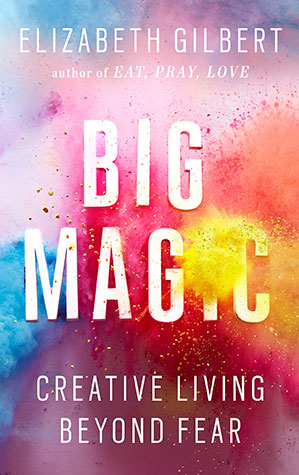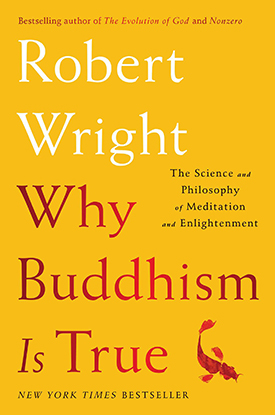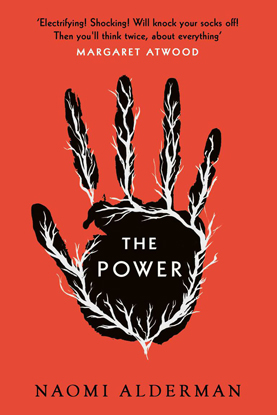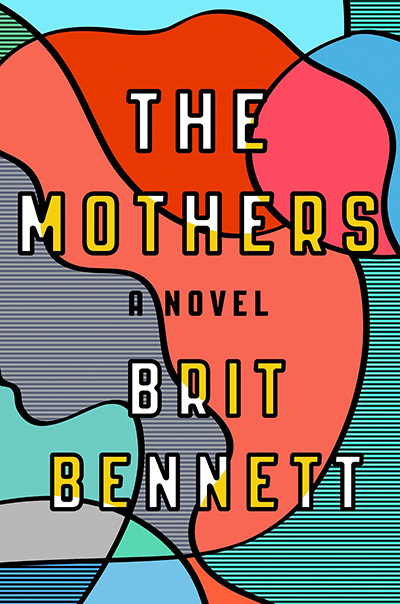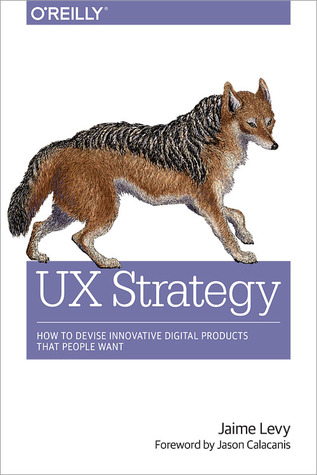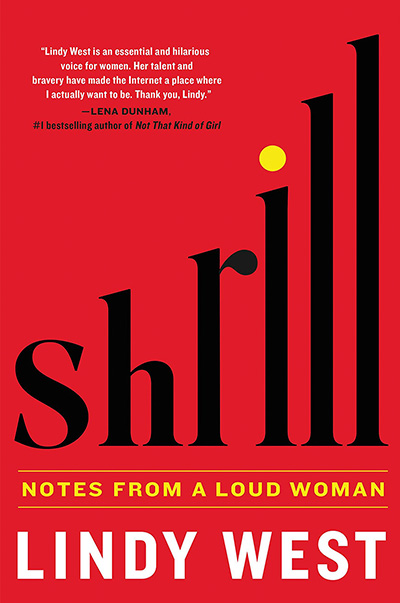-
He [Jack Gilbert] told them that they must live their most creative lives as a means of fighting back against the ruthless furnace of this world…Without bravery, they would never know the world as richly as it longs to be known.
-
So this, I believe, is the central question upon which all creative living hinges: Do you have the courage to bring forth the treasures that are hidden within you? Look, I don’t know what’s hidden within you. I have no way of knowing such a thing. You yourself may barely know, although I suspect you’ve caught glimpses. I don’t know your capacities, your aspirations, your longings, your secret talents. But surely something wonderful is sheltered inside you. I say this with all confidence, because I happen to believe we are all walking repositories of buried treasure. I believe this is one of the oldest and most generous tricks the universe plays on us human beings, both for its own amusement and for ours: The universe buries strange jewels deep within us all, and then stands back to see if we can find them.
-
She asked herself when was the last time she’d felt truly light, joyous, and—yes—creative in her own skin. To her shock, she realized that it had been decades since she’d felt that way. In fact, the last time she’d experienced such feelings had been as a teenager, back when she was still figure skating. She was appalled to discover that she had denied herself this life-affirming pursuit for so long, and she was curious to see if she still loved it. So she followed her curiosity. She bought a pair of skates, found a rink, hired a coach.
-
A creative life is an amplified life. It’s a bigger life, a happier life, an expanded life, and a hell of a lot more interesting life. Living in this manner—continually and stubbornly bringing forth the jewels that are hidden within you—is a fine art, in and of itself.
-
I finally realized that my fear was boring.
-
I had fixated upon my fear as if it were the most interesting thing about me, when actually it was the most mundane. In fact, my fear was probably the only 100 percent mundane thing about me. I had creativity within me that was original; I had a personality within me that was original; I had dreams and perspectives and aspirations within me that were original. But my fear was not original in the least. My fear wasn’t some kind of rare artisanal object; it was just a mass-produced item, available on the shelves of any generic box store. And that’s the thing I wanted to build my entire identity around? The most boring instinct I possessed?
-
Your fear will always be triggered by your creativity, because creativity asks you to enter into realms of uncertain outcome, and fear hates uncertain outcome.
-
…this is the other side of the contract with creativity: If inspiration is allowed to unexpectedly enter you, it is also allowed to unexpectedly exit you.
-
The idea of an external genius helps to keep the artist’s ego in check, distancing him somewhat from the burden of taking either full credit or full blame for the outcome of his work. If your work is successful, in other words, you are obliged to thank your external genius for the help, thus holding you back from total narcissism. And if your work fails, it’s not entirely your fault.
-
The gods and the mysteries fell away, and suddenly we put all the credit and blame for creativity on the artists themselves—making the all-too-fragile humans completely responsible for the vagaries of inspiration. In the process, we also venerated art and artists beyond their appropriate stations. The distinction of “being a genius” (and the rewards and status often associated with it) elevated creators into something like a priestly caste—perhaps even into minor deities—which I think is a bit too much pressure for mere mortals, no matter how talented. That’s when artists start to really crack, driven mad and broken in half by the weight and weirdness of their gifts. When artists are burdened with the label of “genius,” I think they lose the ability to take themselves lightly, or to create freely.
-
But such thinking assumes there is a “top”—and that reaching that top (and staying there) is the only motive one has to create. Such thinking assumes that the mysteries of inspiration operate on the same scale that we do—on a limited human scale of success and failure, of winning and losing, of comparison and competition, of commerce and reputation, of units sold and influence wielded. Such thinking assumes that you must be constantly victorious—not only against your peers, but also against an earlier version of your own poor self. Most dangerously of all, such thinking assumes that if you cannot win, then you must not continue to play…What does any of that have to do with the quiet glory of merely making things, and then sharing those things with an open heart and no expectations?
-
…in the end, creativity is a gift to the creator, not just a gift to the audience.
-
The most important thing to understand about eudaimonia, though—about that exhilarating encounter between a human being and divine creative inspiration—is that you cannot expect it to be there for you all the time. It will come and go, and you must let it come and go.
-
No genuine book has a first page. Like the rustling of the forest, it is begotten God knows where, and it grows and it rolls, arousing the dense wilds of the forest until suddenly…it begins to speak with all the treetops at once.
— Boris Pasternak -
…the British physicist Sir Arthur Eddington’s memorable explanation of how the universe works: “Something unknown is doing we don’t know what.”
-
The earliest evidence of recognizable human art is forty thousand years old. The earliest evidence of human agriculture, by contrast, is only ten thousand years old.
-
Keep in mind that for most of history people just made things, and they didn’t make such a big freaking deal out of it. We make things because we like making things. We pursue the interesting and the novel because we like the interesting and the novel.
-
To even call somebody “a creative person” is almost laughably redundant; creativity is the hallmark of our species.
-
When I asked her once how she could allow her body to be marked up so casually with permanent ink, she said, “Oh, but you misunderstand! It’s not permanent. It’s just temporary.”
-
you will never be able to create anything interesting out of your life if you don’t believe that you’re entitled to at least try…creative entitlement simply means believing that you are allowed to be here, and that—merely by being here—you are allowed to have a voice and a vision of your own.
-
Without this arrogance of belonging, you will never be able to take any creative risks whatsoever. Without it, you will never push yourself out of the suffocating insulation of personal safety and into the frontiers of the beautiful and the unexpected.
-
often what keeps you from creative living is your self-absorption (your self-doubt, your self-disgust, your self-judgment, your crushing sense of self-protection). The arrogance of belonging pulls you out of the darkest depths of self-hatred—not by saying “I am the greatest!” but merely by saying “I am here!”
-
I’m talking about the nasty dialogue that goes like this: “Who the hell do you think you are, trying to be creative? You suck, you’re stupid, you have no talent, and you serve no purpose. Get back in your hole.” To which you may have spent a lifetime obediently responding, “You’re right. I do suck and I am stupid. Thank you. I’ll go back in my hole now.” I would like to see you engaged in a more generative and interesting conversation with yourself than that. For heaven’s sake, at least defend yourself!
-
This proclamation of intent and entitlement is not something you can do just once and then expect miracles; it’s something you must do daily, forever.
-
The older I get, the less impressed I become with originality. These days, I’m far more moved by authenticity. Attempts at originality can often feel forced and precious, but authenticity has quiet resonance that never fails to stir me…If it’s authentic enough, believe me—it will feel original.
-
Oh, and here’s another thing: You are not required to save the world with your creativity. Your art not only doesn’t have to be original, in other words; it also doesn’t have to be important.
-
It’s okay if your work is fun for you, is what I’m saying. It’s also okay if your work is healing for you, or fascinating for you, or redemptive for you, or if it’s maybe just a hobby that keeps you from going crazy. It’s even okay if your work is totally frivolous. That’s allowed. It’s all allowed.
-
Whether you are young or old, we need your work in order to enrich and inform our own lives.
-
of course it’s difficult to create things; if it wasn’t difficult, everyone would be doing it, and it wouldn’t be special or interesting.
-
Nobody ever really listens to anybody else’s complaints, anyhow, because we’re all too focused on our own holy struggle, so basically you’re just talking to a brick wall.
-
I have felt the way my self-pity slams the door on inspiration, making the room feel suddenly cold, small, and empty.
-
I told the universe (and anyone who would listen) that I was committed to living a creative life not in order to save the world, not as an act of protest, not to become famous, not to gain entrance to the canon, not to challenge the system, not to show the bastards, not to prove to my family that I was worthy, not as a form of deep therapeutic emotional catharsis…but simply because I liked it. So try saying this: “I enjoy my creativity.” And when you say it, be sure to actually mean it.
-
I certainly don’t ever want to confidently announce that this person is destined to become an important artist, while that person should give it up. How do I know? How does anyone know? It’s all so wildly subjective, and, anyhow, life has surprised me too many times in this realm. On one hand, I’ve known brilliant people who created absolutely nothing from their talents. On the other hand, there are people whom I once arrogantly dismissed who later staggered me with the gravity and beauty of their work. It has all humbled me far beyond the ability to judge anyone’s potential, or to rule anybody out.
-
I beg you not to worry about such definitions and distinctions, then, okay? It will only weigh you down and trouble your mind, and we need you to stay as light and unburdened as possible in order to keep you creating. Whether you think you’re brilliant or you think you’re a loser, just make whatever you need to make and toss it out there.
-
pigeonholing is something people need to do in order to feel that they have set the chaos of existence into some kind of reassuring order.
-
never delude yourself into believing that you require someone else’s blessing (or even their comprehension) in order to make your own creative work. And always remember that people’s judgments about you are none of your business.
-
…what W. C. Fields had to say on this point: “It ain’t what they call you; it’s what you answer to.”
-
If I am allowed to speak my inner truth, then my critics are allowed to speak their inner truths, as well. Fair’s fair.
-
The paradox that you need to comfortably inhabit, if you wish to live a contented creative life, goes something like this: “My creative expression must be the most important thing in the world to me (if I am to live artistically), and it also must not matter at all (if I am to live sanely).”
-
I simply vowed to the universe that I would write forever, regardless of the result. I promised that I would try to be brave about it, and grateful, and as uncomplaining as I could possibly be. I also promised that I would never ask writing to take care of me financially, but that I would always take care of it—meaning that I would always support us both, by any means necessary. I did not ask for any external rewards for my devotion; I just wanted to spend my life as near to writing as possible—forever close to that source of all my curiosity and contentment—and so I was willing to make whatever arrangements needed to be made in order to get by.
-
It’s a simple and generous rule of life that whatever you practice, you will improve at.
-
It’s never too late.
-
…your education isn’t over when they say it’s over; your education is over when you say it’s over.
-
I found that if I just stayed with the process and didn’t panic, I could pass safely through each stage of anxiety and on to the next level. I heartened myself with reminders that these fears were completely natural human reactions to interaction with the unknown.
-
Mark Manson, who said that the secret to finding your purpose in life is to answer this question in total honesty: “What’s your favorite flavor of shit sandwich?”…every single pursuit—no matter how wonderful and exciting and glamorous it may initially seem—comes with its own brand of shit sandwich, its own lousy side effects.
-
“Everything sucks, some of the time.”
-
I held on to those other sources of income for so long because I never wanted to burden my writing with the responsibility of paying for my life.
-
Most individuals have never had enough time, and they’ve never had enough resources, and they’ve never had enough support or patronage or reward…and yet still they persist in creating.
-
The writer Rebecca Solnit puts it well: “So many of us believe in perfection, which ruins everything else, because the perfect is not only the enemy of the good; it’s also the enemy of the realistic, the possible, and the fun.”
-
Perfectionism stops people from completing their work, yes—but even worse, it often stops people from beginning their work. Perfectionists often decide in advance that the end product is never going to be satisfactory, so they don’t even bother trying to be creative in the first place.
-
Too many women still seem to believe that they are not allowed to put themselves forward at all, until both they and their work are perfect and beyond criticism. Meanwhile, putting forth work that is far from perfect rarely stops men from participating in the global cultural conversation. Just sayin’.
-
I’ve watched far too many brilliant and gifted female creators say, “I am 99.8 percent qualified for this task, but until I master that last smidgen of ability, I will hold myself back, just to be on the safe side.”
-
No matter how many hours you spend attempting to render something flawless, somebody will always be able to find fault with it. (There are people out there who still consider Beethoven’s symphonies a little bit too, you know, loud.) At some point, you really just have to finish your work and release it as is—if only so that you can go on to make other things with a glad and determined heart.
-
It has taken me years to learn this, but it does seem to be the case that if I am not actively creating something, then I am probably actively destroying something (myself, a relationship, or my own peace of mind).
-
We all need something that helps us to forget ourselves for a while—to momentarily forget our age, our gender, our socioeconomic background, our duties, our failures, and all that we have lost and screwed up.
-
Perhaps creativity’s greatest mercy is this: By completely absorbing our attention for a short and magical spell, it can relieve us temporarily from the dreadful burden of being who we are.
-
“We all spend our twenties and thirties trying so hard to be perfect, because we’re so worried about what people will think of us. Then we get into our forties and fifties, and we finally start to be free, because we decide that we don’t give a damn what anyone thinks of us. But you won’t be completely free until you reach your sixties and seventies, when you finally realize this liberating truth—nobody was ever thinking about you, anyhow.”
— Anonymous 70-something woman -
People are mostly just thinking about themselves. People don’t have time to worry about what you’re doing, or how well you’re doing it, because they’re all caught up in their own dramas…While it may seem lonely and horrible at first to imagine that you aren’t anyone else’s first order of business, there is also a great release to be found in this idea. You are free, because everyone is too busy fussing over themselves to worry all that much about you.
-
Done Is Better Than Good
-
You do what you can do, as competently as possible within a reasonable time frame, and then you let it go.
-
Look around you, the evidence is everywhere: People don’t finish. They begin ambitious projects with the best of intentions, but then they get stuck in a mire of insecurity and doubt and hairsplitting…and they stop. So if you can just complete something—merely complete it!—you’re already miles ahead of the pack, right there.
-
Creative living is stranger than other, more worldly pursuits. The usual rules do not apply. In normal life, if you’re good at something and you work hard at it, you will likely succeed. In creative endeavors, maybe not. Or maybe you will succeed for a spell, and then never succeed again.
-
…the goddess of creative success may show up for you, or she may not. Probably best, then, if you don’t count on her, or attach your definition of personal happiness to her whims.
-
When it’s for love, you will always do it anyhow.
-
Even if things work out for you in the arts, parts of your career will likely always remain crap…Trust me, if you want to complain, you’ll always find plenty to complain about, even when fortune appears to be shining her favor upon you.
-
The first question is: “Do you love nature?” Every hand in the room goes up. The second question is: “Do you believe that nature loves you in return?” Every hand in the room goes down. At which point Robin says, “Then we have a problem already.”…These earnest young world-savers honestly believe that the living earth is indifferent to them. They believe that humans are nothing but passive consumers, and that our presence here on earth is a destructive force. (We take, take, take and offer nothing of benefit to nature in return.) They believe that humans are here on this planet by random accident, and that therefore the earth doesn’t give a damn about us…Our ancestors always operated with a sense of being in a reciprocal emotional relationship with their physical surroundings. Whether they felt that they were being rewarded by Mother Nature or punished by her, at least they were engaged in a constant conversation with her.
— Dr. Robin Wall Kimmerer’s environmental bio clas at SUNY -
What you produce is not necessarily always sacred, I realized, just because you think it’s sacred. What is sacred is the time that you spend working on the project, and what that time does to expand your imagination, and what that expanded imagination does to transform your life.
-
My favorite meditation teacher, Pema Chödrön, once said that the biggest problem she sees with people’s meditation practice is that they quit just when things are starting to get interesting. Which is to say, they quit as soon as things aren’t easy anymore, as soon as it gets painful, or boring, or agitating. They quit as soon as they see something in their minds that scares them or hurts them. So they miss the good part, the wild part, the transformative part—the part when you push past the difficulty and enter into some raw new unexplored universe within yourself…Whatever it is you are pursuing, whatever it is you are seeking, whatever it is you are creating, be careful not to quit too soon.
-
You don’t need to conduct autopsies on your disasters. You don’t need to know what anything means. Remember: The gods of creativity are not obliged to explain anything to us. Own your disappointment, acknowledge it for what it is, and move on. Chop up that failure and use it for bait to try to catch another project.
-
Einstein called this tactic “combinatory play”—the act of opening up one mental channel by dabbling in another. This is why he would often play the violin when he was having difficulty solving a mathematical puzzle; after a few hours of sonatas, he could usually find the answer he needed.
-
What do you love even more than you love your own ego?
Highlights from all books
Some books may contain spoilers
-
Sometimes understanding the ultimate source of your suffering doesn’t, by itself, help very much.
-
We spend more time envisioning the perks that a promotion will bring than envisioning the headaches it will bring. And there may be an unspoken sense that once we’ve achieved this long-sought goal, once we’ve reached the summit, we’ll be able to relax, or at least things will be enduringly better.
-
Natural selection doesn’t “want” us to be happy, after all; it just “wants” us to be productive, in its narrow sense of productivity. And the way to make us productive is to make the anticipation of pleasure very strong but the pleasure itself not very long-lasting.
-
One thing I occasionally do when I’m feeling very sad…is sit down, close my eyes, and study the sadness: accept its presence and just observe how it actually makes me feel.
-
One of the take-home lessons of Buddhist philosophy is that feelings just are. If we accepted their arising and subsiding as part of life, rather than reacting to them as if they were deeply meaningful, we’d often be better off. Learning to do that is a big part of what mindfulness meditation is about.
-
Feelings are designed to encode judgments about things in our environment.
-
True, pure enlightenment, in this view, is like what mathematicians call an asymptote: something you can get closer and closer to but never quite reach.
-
The idea of self is an imaginary, false belief which has no corresponding reality, and it produces harmful thoughts of ‘me’ and ‘mine’, selfish desire, craving, attachment, hatred, ill-will, conceit, pride, egoism, and other defilements, impurities, and problems. It is the source of all the troubles in the world from personal conflicts to wars between nations. In short, to this false view can be traced all the evil in the world.
— Walpola Rahula -
So too with perceptions, mental formations, and consciousness. Are any of these things really under control—so completely under control that they never lead to suffering? And if they’re not under control, then how can we think of them as part of the self?
-
If you followed the Buddha’s guidance and abandoned the massive chunks of psychological landscape you’ve always thought of as belonging to you, you would undergo a breathtaking shift in what it means to be human. If you attained the state he’s recommending, this would be very different from having a self in the sense in which you’ve always had one before.
-
Separate the act of observation from the act of evaluation.
-
Think of yourself as having, in principle, the power to establish a different relationship with your feelings and thoughts and impulses and perceptions—the power to disengage from some of them; the power to, in a sense, disown them, to define the bounds of your self in a way that excludes them.
-
…sit down, close your eyes, focus on your breath, and then, once you start failing to focus on your breath (which shouldn’t take long!), try to focus on the things that are keeping you from focusing on your breath. And I don’t mean just focus on whatever thought is distracting you—I mean see if you can detect some feeling that is linked to the thought that is distracting you.
-
…brain scans are showing that a curious state of mind involves activity in the dopamine system, the system involved in motivation and reward, in desire and pleasure.
-
[Judson] Brewer said the basic idea is to not fight the urge to, say, smoke a cigarette. That doesn’t mean you succumb to the urge and light up a cigarette. It just means you don’t try to push the urge out of your mind. Rather, you follow the same mindfulness technique that you’d apply to other bothersome feelings—anxiety, resentment, melancholy, hatred. You just calmly (or as calmly as possible, under the circumstances) examine the feeling. What part of your body is the urge felt in? What is the texture of the urge? Is it sharp? Dull and heavy? The more you do that, the less the urge seems a part of you; you’ve exploited the basic irony of mindfulness meditation: getting close enough to feelings to take a good look at them winds up giving you a kind of critical distance from them. Their grip on you loosens; if it loosens enough, they’re no longer a part of you. There’s an acronym used to describe this technique: RAIN. First you Recognize the feeling. Then you Accept the feeling and its relationship to your body. Finally, the N stands for Nonidentification, or, equivalently, Nonattachment.
-
The bad news is that you don’t exist; the good news is that you’re everything.
-
Nothing possesses inherent existence; nothing contains all the ingredients of ongoing existence within itself; nothing is self-sufficient. Hence the idea of emptiness: all things are empty of inherent, independent existence.
-
However complicated you think it is, everything is more complicated than that. There are no shortcuts. Not to understanding and not to knowledge. You can’t put anyone into a box. Listen, even a stone isn’t the same as any other stone, so I don’t know where you all think you get off labeling humans with simple words and thinking you know everything you need.
-
Her days felt like being handed from person to person like a baton, her calculus teacher passing her to her Spanish teacher to her chemistry teacher to her friends and back home to her parents. Then one day, her mother’s hand was gone and she’d fallen, clattering to the floor.
-
Bones, like anything, strong until they weren’t.
-
Oh girl, we have known little bit love…we have run tongues over teeth to savor that last littlebit as long as we could, and in all our living, nothing has starved us more.
-
We don’t think of ourselves as “prayer warriors.” A man must’ve come up with that term—men think anything difficult is war.
-
Maybe she’d never really known her mother at all. And if you couldn’t know the person whose body was your first home, then who could you ever know?
-
That’s what happens when you get old. Every part of you drops, as if the body is moving closer to where it’s from and where it’ll return.
-
It’s exciting, loving someone who can never love you back. Freeing, in its own way.
-
She got her mother in her, holding the knife, and her own spirit flinted over, and each time they struck, she would spark. Her whole life, a spark.
-
We see the span of her life unspooling in colorful threads and we chase it, wrapping it around our hands as more tumbles out. She’s her mother’s age now. Double her age. Our age. You’re our mother. We’re climbing inside of you.
Seeking the Sacred by Stephanie Dowrick
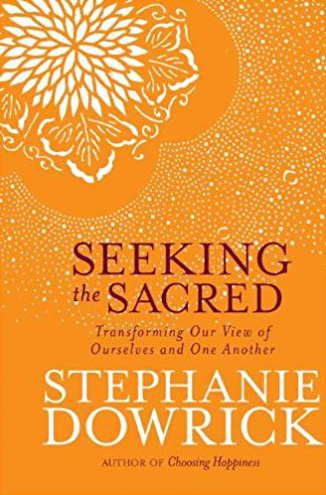
-
What we regard as precious, we will naturally protect.
-
Concern, connectedness, dignity, forgiveness, patience, tolerance, gratitude, and an inclusive intelligence: this is what the world needs. This is what we need.
-
Whatever our culture, religion, or language, we want food, shelter, and good health. We want to be able to get up in t he morning enthusiastically and sleep safely at night. We want health, safety, and happiness for our loved ones. We want to know that our lives are purposeful and sometimes gracious. We want to feel part of something greater than ourselves. We want and neeed inspiration and meaning.
-
Acknowledging your gift of life as sacred doesn’t mean I have to like you, agree with you, or support your views. It doesn’t mean that I have to lie down like a doormat for your feet. It doesn’t mean that I should stand by passively or indifferently if you are harming yourself or others. It doesn’t mean that I can afford to harm or diminish myself. What it does mean is that I have no right to denigrate, hurt, or kill you because you see the world and its problems differently from how I do. I have no right to crush your spirit to make myself feel bigger or more important. I have no right, either, to ignore or compound your suffering because it is taking place in a country far from my home, because your religion is not mine or because I loath and despise your political or cultural ideology. Nor dor I have the right to scorn or trample on my own precious, unique gift of life because it isn’t measuring up to the plan I had for it.
-
Tell people how innately worthless they are and their feelings of spiritual entitlement will be impoverished.
-
“Believing” in love as a value, and perhaps also in a God of love, while living unlovingly, is progressively less convincing.
-
Our inner changes are not always “convenient” to outer timetables. We can’t and we do not always move right along at a pace that others would like and we might also desire.
-
We are drowning in an ocean of self.
-
It takes tremendous courage to consider that whatever is unwelcome in our lives is not happening to us but possibly FOR us.
-
…to see our lives as sacred is literally life-saving.
-
Great doubt: great awakening. / Little doubt: little awakening. / No doubt: no awakening.
— Zen teaching -
How we think about ourselves will emerge loud and clear through the way we think about and treat other people.
-
We need to know that it always harms our own sense of self when we reduce “the other” to little more than an object of our contempt. Such behavior demonstrates a brutal ignorance of the subtle and even the gross complexities of each individual’s unfolding situation, and of spiritual claims that in our vast and uncomfortable diversity we are a single family.
-
Conditional love lets me love my life (and myself) when I am giving or doing “enough”. Unconditional love lets me love and value my life. Period.
-
Your inner critic and mine…knows little or nothing about sufficiency. On the contrary, [they] may mistake “sufficiency” for bigheadedness, for being “spoiled”, smug, or self-satisfied. Inner critics might vary their messages between criticisms, warnings, whining, bullying, or belittling, but are unlikely ever to be spacious, kind, light, or forgiving, or to remind us of the preciousness of this fleeting life, the preciousness of our own lives, and the capacities we have to meet even the most difficult moments with courage and hope.
-
Yvonne’s inner story paralyzes even her capacity to imagine effective change and, like any one of us, Yvonne will never achieve what she cannot first imagine.
-
Identity is always a mix of the conditioned and the chosen.
-
It took me so many years to discover that the value of my life does not rest on my work. My life—like yours—is intrinsically precious. Has intrinsic meaning. Is already a gift and always has been.
-
We receive love more confidently when we feel able to give it.
-
I am part of something wondrous. My life has value.
-
What seekers do need and often year for is…“a direct and unmediated contact with the Divine, free of the divisiveness, body hatred, and bias towards transcendence that disfigures all the inherited patriarchal religions.”
— Andrew Harvey, “The Direct Path” -
Yet a sense that our inner world is a place of love and a resource for all the highest qualities can be extremely difficult to grasp with the intellect alone. Surrender some of our usual ways of thinking is needed to make way for these kinds of experiences.
-
“We are not spiritual beings having spiritual experiences. We are spiritual beings living a human life.”
— Pierre Teilhard de Chardin -
What a delight to find that you are not the center of an anxious universe, with other people waiting to judge and condemn you, but that instead you are part of an intricately connected, sacred universe, filled with people whom you can positively influence, support, and encourage—and who will sometimes similiarly support you.
-
Wisdom teaches me I am nothing. Love teaches me I am everything. Between these two poles my life flows.
— Sri Nisargadatta Maharaj -
I don’t feel a need to know the details of the afterlife experience. I have a profound trust that my spirit knows where it came from and therefore knows where it’s going.
-
Worldwide spending on war and war readiness is greater than the sum needed for every human being on earth to have food, clean water and shelter, and the chance to live in their homeland.
-
When you know beyond all doubting that the same life flows through all that is and you are that life, you will love all naturally and spotaneously. When you realize the depth and fulness of your love of yourself, you know that every living being and the entire universe are included in your affection.
— Sri Nisargadatta Maharaj -
“One of the conditions of enlightenment has always been a willingness to let go of what we thought we knew in order to appreciate truths we had never dreamed of.”
— Karen Armstrong -
“Believe nothing because someone wise has said it. / Believe nothing because it is generally held. / Believe nothing because it is written down. / Believe nothing because it is said to be Godly. Believe nothing because someone else believes it. / Believe only what you yourself discover to be true.”
— the Buddha -
The journey inward is risky. People know that instinctively. Maps that take us in that direction are handmade and patchy. What they may do for me today may not help me tomorrow. Staying awake demands mindfulness writ large.
-
“Horizons are smashed [and] people of different beliefs and cultures are colliding with each other. That transformation is really of the whole sense of humanity and what it means to be a cultured and world-related human being. Anything from the past–such as an idea of what [humankind] of this, that, or another culture might be, or should be—is now archaic. And so we have to leave our little provincial stories behind. They may guide us as far as structuring our lives for the moment, but we must always be ready to drop them and to grab the new experience as it comes along, and to interpret it.
— Joseph Campbell, “The Open Life” -
“We live at a pace where it is normal to jump when someone snaps their fingers. And to feel guilty and ashamed if we can’t. It’s so normal to ‘serve’ a whole fleet of ‘masters’ that we hardly know we are doing it: the masters of the media, of commercialization, of semmingly trivial things like what we should wear or eat or how slim or fit we should be, as well as the more obvious ‘masters’ of work and its demands.”
— Jane Moore -
We need time for reverie and daydreaming, a necessary precursor to any kind of original thinking or creativity, and so often ignored as we sit in front of electronic screens both for work and rest.
-
How we understand or accept the inevitability of death will starkly affect how we regard life, and move through it.
-
How did we learn it, that talent for insatiability?
-
Waste not want not. I am not being wasted. Why do I want?
-
The young ones are often the most dangerous, the most fanatical, the jumpiest with their guns. They haven't yet learned about existence through time.
-
These women are not divided into functions. They have to do everything; if they can.
-
I used to think of my body as an instrument, of pleasure, or a means of transportation, or an implement for the accomplishment of my will. I could use it to run, push buttons of one sort or another, make things happen. There were limits, but my body was nevertheless lithe, single, solid, one with me. Now the flesh arranges itself differently. I'm a cloud, congealed around a central object, the shape of a pear, which is hard and more real than I am and glows red within its translucent wrapping.
-
I tell myself it doesn't matter, your name is like your telephone number, useful only to others; but what I tell myself is wrong, it does matter.
-
But this is wrong, nobody dies from lack of sex. It's lack of love we die from.
-
A man is just a woman's strategy for making other women.
-
It's impossible to say a thing exactly the way it was, because what you say can never be exact, you always have to leave something out, there are too many parts, sides, crosscurrents, nuances; too many gestures, which could mean this or that, too many shapes which can never be fully described, too many flavors, in the air or on the tongue, half-colors, too many.
-
But remember that forgiveness too is a power. To beg for it is a power, and to withhold or bestow it is a power, perhaps the greatest.
-
Maybe it's about who can do what to whom and be forgiven for it.
-
To want is to have a weakness.
-
I feel like cotton candy, sugar and air. Squeeze me and I'd turn into a small sickly damp wad of weeping pinky-red.
-
How easy it is to invent a humanity, for anyone at all. What an available temptation.
-
A rat in a maze is free to go anywhere, as long as it stays inside the maze.
-
That was when they suspended the Constitution. They said it would be temporary. There wasn't even any rioting in the streets. People stayed home at night, watching television, looking for some direction. There wasn't even an enemy you could put your finger on.
-
You can't help what you feel, Moira once said, but you can help how you behave.
-
You might even provide a Heaven for them. We need You for that. Hell we can make for ourselves.
-
Who can tell what they really are? Under their daily-ness.
-
Working out was also something you did to keep your body in shape, for the man. If you worked out enough, maybe the man would too.
-
We were revisionists; what we revised was ourselves.
-
I don't want her to be like me. Give in, go along, save her skin. That is what it comes down to. I want gallantry from her, swashbuckling, heroism, single-handed combat. Something I lack.
-
I can't quite believe it. Surely her cockiness, her optimism and energy, her pizzazz, will get her out of this. She will think of something. But I know this isn't true. It is just passing the buck, as children do, to mothers.
-
I remind myself that he is not an unkind man; that, under other circumstances, I even like him.
-
I wish this story were different. I wish it were more civilized. I wish it showed me in a better light, if not happier, then at least more active, less hesitant, less distracted by trivia. I wish it had more shape. I wish it were about love, or about sudden realizations important to one's life, or even about sunsets, birds, rainstorms, or snow. Maybe it is about those things, in a way; but in the meantime there is so much else getting in the way, so much whispering, so much speculation about others, so much gossip that cannot be verified, so many unsaid words, so much creeping about and secrecy. And there is so much time to be endured, time heavy as fried food or thick fog; and then all at once these red events, like explosions, on streets otherwise decorous and matronly and somnambulent.
-
Intrapreneurship is the act of behaving like an entrepreneur while working within a large organization. You need to decide to take the fate of the product into your own hands through assertive risk-taking and innovation.
-
If you are doing best practices, you are not innovating.
— look up later -
Two-sided markets are what make the Internet go around.
-
The reality is that people often use products or combinations of products in ways that the product makers do not expect.
-
Simply offering as many features as you can overlooks the holistic UX and business model, and it doesn’t address what features the customers actually want or need to accomplish their primary goal.
-
The big payoff of exposing yourself to new experiences outside of your comfort zone is that they make it possible for us to grow as people. You change when you disrupt habitual patterns, and it affords you new ways of doing, being, and experiencing.
-
Innovation can happen in small, incremental steps. You can innovate around a feature or an interface or in phases, and ultimately it builds up to this really extraordinary, meaningful, hard-to-replicate experience.
-
Listen to those you don’t agree with. Are they making sense? Have you overlooked something? Seek opinions from people with different areas of expertise to gain different perspectives.
-
The lesson is that strategy is iterative just like everything else. You come up with a hypothesis, you create a plan, and you move forward until you learn new information, reposition the hypothesis, and adjust the plan.
-
We need to accept that failure, while an insurmountable barrier to some, might be an essential part of our product’s journey toward success.
-
What if we got into a scrape? They couldn’t boost me up a cliff or lower me down an embankment or squeeze me through a tight fissure or hoist me from the hot jaws of a bear.
-
They tell you that if you hate yourself hard enough, you can grab just a tail feather or two of perfection.
-
Denying people access to value is an incredibly insidious form of emotional violence, one that our culture wields aggressively and liberally to keep marginalized groups small and quiet.
-
Studies have shown that visual exposure to certain body types actually changes people’s perception of those bodies—in other words, looking at pictures of fat people makes you like fat people more. (Eternal reminder: Representation matters.)
-
The tide of public opinion has always turned, invariably, on coolness. People just want to be cool.
-
All of those changes are small, but they tell us something big: Our world isn’t fixed, the way those currently in charge would have you believe. It’s malleable.
-
Voting is world-building. So is kindness, compassion, listening, making space, saying yes, saying no. We’re all building our world, right now, in real time. Let’s build it better.
-
It’s not easy, but I’m not easy, so we match.
-
Blackness is not a monolith. There’s nerdy black, jock black, manic pixie dream black, sassy black, shy black, conscious black, hipster black...the list goes on and on. But some people don’t want to believe that, because if varying degrees of blackness become normalized, then that means society has to rethink how they treat black people.
-
coded language—which is language that, on the surface, seems to mean one thing to the average person but has a different, often pejorative, meaning to the person or group of people being talked about...
-
Do everything you intend to do with no regard for how people want you or expect you to behave.
-
People who cease to believe in God or goodness altogether still believe in the devil. I don’t know why. No, I do indeed know why. Evil is always possible. And goodness is eternally difficult.
-
I should like to pass through all manner of different keyholes and feel the tickle of their peculiar shapes.
-
I thought of what lay before me throughout the world and throughout time, and resolved to go about it delicately and reverently, learning that from each thing which would take me best to another.
-
I suppose that is the nature of the monument. Be it a small house or a mansion of Corinthian columns and wrought-iron lace. The monument does not say that this or that man walked here. No, that what he felt in one time in one spot continues. The moon that rose over New Orleans then still rises. As long as the monuments stand, it still rises. The feeling, at least here … and there … it remains the same.
-
Like all strong people, she suffered always a measure of loneliness; she was a marginal outsider, a secret infidel of a certain sort.
-
The sky had come down to meet the sea and that some great secret was to be revealed in that meeting, some great gulf miraculously closed forever.
-
I had one of those rare moments when it seemed I thought of nothing. My mind had no shape. I saw that the rain had stopped. I saw that the air was clear and cold. That the street was luminous.
